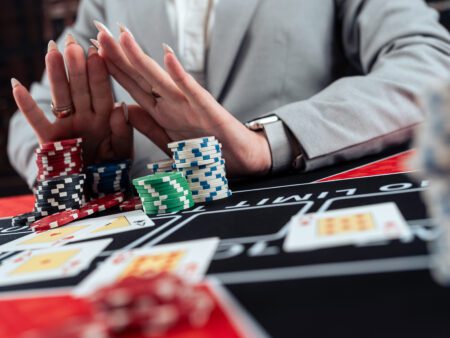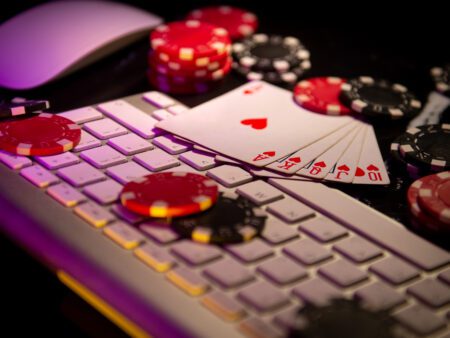Explore the fascinating world of online poker from a psychological perspective. Understand the science behind bluffing, risk management, emotional control, as well as developing patience and resilience.
Mind Games: Understanding the Psychological Strategies Used in Online Poker
‘Poker is not simply a game of luck; it’s a game of controlled chaos, psychology, and strategy.’ – This statement accurately captures the essence of the immensely popular card game that is poker. It is even more applicable when it comes to the world of online poker where the psychological prowess of a player becomes an instrumental factor in their success or downfall. But why is psychology so vital in online poker games and how can understanding it help you manage emotions, build confidence, and gain control over your game? Let’s delve into the abyss of the online poker mind games.
The Science Behind the Bluff
Online poker offers a unique environment, where cues are not physical but rather ranged in betting styles, timing, and frequency of play. In this scenario, bluffing, an intrinsic part of poker, enters the realm of psychological warfare. It’s not merely about pretending to own a high-value hand; it’s about convincingly selling your narrative to the other players, inducing uncertainty and doubt in their minds. The understanding and manipulating of these factors elevate poker from a mere card game to a strategic battlefield of the mind.
The Psychology of Risk and Decision-Making
Why does a player opt to ‘call’ instead of ‘fold’, or take the leap to ‘raise’? The answers lie in the psychological aspects of risk perception and decision-making. Players assess potential gain versus potential loss – influenced both by the numerical odds and how those odds are perceived emotionally. The thrill of the risk, the fear of loss, the hope for a windfall – all play a part in each decision made, making poker not just a statistical game, but a deeply human one.
Emotional Control & Tilt Management
One of the critical psychological components in online poker is emotional regulation or tilt management. In poker, a ’tilt’ is a state of mental or emotional confusion or frustration in which a player adopts a less-than-optimal strategy. It usually occurs after the player has suffered an unexpected setback or loss. Learning to identify the onset of ’tilt’, understanding its consequences, and having strategies to cope with it are essential psychological tools for any poker player.
Patience and Endurance
Becoming a successful online poker player is not an overnight journey. It demands discipline, patience, and a high degree of resilience in the face of adversity. Building mental endurance helps you stay focused during the games especially in the critical moments and protect against discouragement and burn-out during longer, and sometimes losing, campaigns.
Online Poker and Emotional Management
It is well known that emotional management is critical in many aspects of life; it’s particularly essential in online poker. The game is a rollercoaster of highs and lows, with stakes that often involve real money. One bad hand could fuel swells of disappointment and frustration, leading to rash decisions in subsequent hands. This phenomenon is known as ’tilting.’ Tilting has sent many online poker players to unexpected losses, all because of failing to manage emotions effectively.
To perform well, poker players must learn to perceive their emotions, understand their source, and take appropriate actions. This mental resilience could involve taking a break after a loss, meditating, or using cognitive restructuring to change the negative thought patterns that might be influencing one’s emotional state. Understanding the psychology of poker can indeed make a significant difference in your overall gaming experience.
The Impact of Confidence in Poker
While the right amount of confidence is necessary to make brave moves and take risks, overconfidence can be a player’s downfall. Players must be able to accurately assess their abilities against those of their opponent’s. Inflated self-belief can lead to rash decisions, while low self-esteem might mean missing out on opportunities to win. Confidence in poker, therefore, should always be balanced and grounded in reality.
Staying in Control: The Power of Strategic Play
Aside from emotional regulation and confidence, strategic play is a significant component that influences a player’s mental state. By making each poker decision with purpose—whether it’s bluffing, folding early, or betting aggressively—players can maintain control over the outcome of their game. This control can lead to increased calm, composure, and confidence, further enhancing performance.
Beyond understanding individual tactics, gaining a comprehensive knowledge of poker strategy helps build a robust mental resilience. A deep understanding of poker odds, for instance, can help alleviate stress when faced with tough decisions, as you’re basing your choices on proven statistics rather than unchecked emotions.
In conclusion, the psychological aspects of online poker are as important as understanding the basic rules of the game. Emotion management, confidence, strategic play, and knowledge of poker statistics not only help increase your chances of winning but also make the game more enjoyable and less stressful.
As you navigate through the thrilling world of online poker, remember, it is not about dominating the table every time. It’s about learning, growing, and enjoying every hand you’re dealt with. And remember, every loss is an opportunity for a comeback, and every win is a chance to improve even further.
Ready to dive deep into the psychological aspects of online poker and level up your play strategically and emotionally? Join us today at www.onlinegambling777.com.










